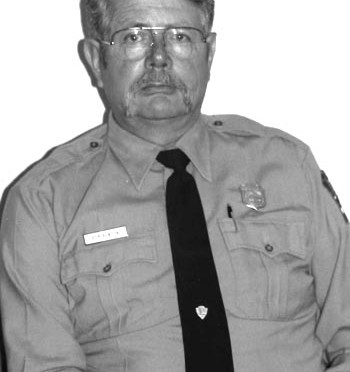And your office space increased dramatically after the rehabs too.
Oh yeah. We were all. . . administration, the superintendents office, interpretation, part of the ranger office, maintenance [were] all centered in what is now that building, what do we call it these days, the Sager Building. So we had all of this diverse thing, and we built quarters, and rehabbed them (54). Everything that we did changed as these things were completed. You have to start, then, getting out of the construction/reconstruction mode and getting into basic maintenance. And where you had only a few poorly-kept buildings for me and you to worry about when I got there, now you guys face a lot of very nice buildings that need a first-class me-and-you operation to take care of [or] else they will all turn into what the hell they were when I got there.
And somebody that really knows those preservation guides (55)?
That’s what it’s all about. That’s exactly right. I’ve always maintained you need, and one of the things that is icing on the cake, a preservation specialist. I would have thought that we would have got it at some point. We sent some of our maintenance people off to the preservation school. I don’t think they got much out of it. But I do think that probably, had I stayed, by now or very shortly ahead from now, we’d have an historian-type folk working in maintenance.
Like an historical architect?
Not an architect in the sense of. . . it’s probably an historic preservation person.
Like a maintenance person.
A trained, historical preservation person in maintenance, probably as a staffer, right to the chief.
[This person] would have a lot of the traditional skills and certainly know how to translate today’s technology into maintaining the buildings?
Exactly. And close enough to the chief of maintenance that he could make it happen. And enough authority from that area that he could go down and where some klutz in the carpenter’s shop was trying to screw something up get it stopped or changed. This is 1994. By about now, we would have had that type of a person within maintenance.


